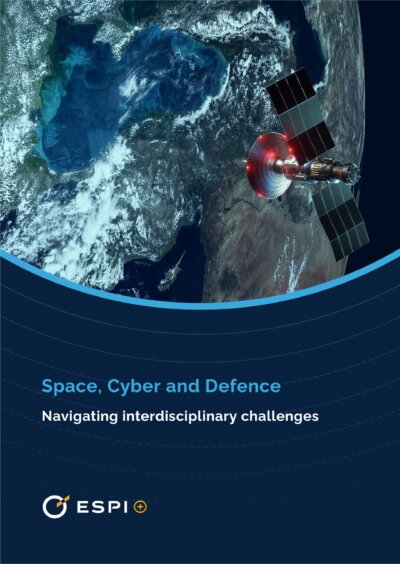Executive Brief No. 54
1. The UN First Committee’s resolution on norms of responsible behaviours.
On November 1st 2021, the United Nations General Assembly’s First Committee on Disarmament and International Security, adopted five resolutions related to outer space: “Prevention of an arms race in outer space (PAROS) (L.3)”, “No first Placement of weapons in outer space (L.50)”, “Reducing space threats through norms, rules and principles of responsible behaviours (L.52)”, “Further practical measures for the prevention of an arms race in outer space (PAROS) (L.53)” and “Transparency and confidence-building measures (TCBMs) in outer space activities (L.60)”.
Among those, resolution L.52 represents a potential game-changer in the modus operandi that has thus far prevailed in tackling space security issues within the UN. Specifically, the resolution supported a shift in approach to consider and value behaviours – instead of technological hardware and capabilities – as the basis for international norm-setting. The resolution states “the need for all states to work together to reduce threats to space systems through the further development and implementation of norms, rules and principles of responsible behaviours […] which might […] contribute to further consideration of legally binding instruments”. As a concrete measure, the resolution decided to convene an Open-Ended Working Group (OEWG), meeting twice in 2022 and 2023 and working on the basis of consensus, to take stock of existing international legal and normative frameworks concerning threats arising from states’ behaviours that could be considered irresponsible, and to make recommendations on possible norms of responsible behaviours. With 163 votes in favour, 8 against and 9 abstentions, the L.52 resolution received strong support.
2. A western-led controversial process…
The new UN resolution builds on the process initiated in 2020 by the UK, which sponsored a resolution on reducing space threats through norms, rules and principles of responsible behaviours. Submitted to the UNGA at its 75th session and adopted in December 2020 (A/RES/75/36) the resolution called for a behaviour-based approach, defining 3 goals: first, to look at current treaties and agreements that relate to how to interact in space in order to highlight the gaps: second, to have an open dialogue around current and future threats and security risks as well as to make a clear distinction between intended state actions threatening or raising tensions and dual use technologies; and third, to directly address what norms could provide solutions to these threats and risks. The promotion of responsible behaviour was also mentioned in the recently published new UK Space Strategy (goal 2), which highlights UK’s resolve to “run a further resolution to set up a UN Working Group to discuss the building blocks and details of responsible space behaviours”.
The UK-led L.52 process notably received a strong support from the U.S., which is similarly pushing for the establishment of norms for responsible behaviour. Notably, in July 2021, the U.S. Defence Secretary Lloyd Austin signed an unclassified, formal memo incl. 5 tenets of responsible behaviours in space – the first published memo of this kind which was welcomed by many experts, arguing that it is a good first step and that stating these tenets would allow the U.S. to lead by example. These attempts are in line with the U.S. DoD’s 2020 defence Space Strategy and the current U.S. Space Force Planning Guidance which are stating that the U.S. seek to ensure space stability by promoting standards and norms of behaviours in space. On a similar vein, several European states have been working on Principles for Responsible Behaviour in Outer Space (PORBOS), and have unanimously supported the L.52 resolution.
Overall, while the resolution obtained the overwhelming majority of votes, it also received nonnegligible objections by some important space powers, notably China and Russia. Together with Iran, Cuba, Nicaragua, Syria, Venezuela and DPRK, China and Russia casted votes against L.52, arguing that the OEWG was not sufficiently legal in its approach and detached from the treatybased disarmament agenda, although this was exactly the point of the new initiative. It was also contested that norms of responsible behaviour could be used as a political tool for certain countries to shirk their own responsibility, pin the blame on others and to create pressure for certain types of behaviour in space, which can in turn increase existing tensions. On a similar stance, the objections and concerns expressed by other non-western states, including India, which, despite abstaining from the final voting, expressed concerns over the subjective nature of concepts such as “responsible behaviour” and “perception of threats”.
3. …reaching a compromise with the potential to deliver results.
Despite many states might prefer a new legally binding instrument to address space security issues and the looming weaponization of outer space, most seem now willing to accept the development of norms of behaviours – as a first step. Norms of responsible behaviours can be a good step to build trust and can be further developed into a legally binding framework, which is not a new approach: historically, norms have provided flexible solutions in cases when diplomatic-political hurdles made the development of legal frameworks impractical. As also stated by the EU during the UN First Committee, “without excluding the possibility of a legally binding instrument in the future, the EU and its Member States believe that voluntary measures constitute a pragmatic way forward at the moment, starting with norms, rules and principles of responsible behaviours, through an incremental and inclusive process” (EU Statement UN 1st Committee October 11th, 2021).
In addition to focusing on norms of responsible behaviours, the new resolution explicitly acknowledges the importance of legally binding measures and verification mechanisms, thus meeting to some extent the preferences of China and Russia. As such, the outcome of the First Committee’s vote could be an important compromise: the U.S. have now accepted the possibility that the OEWG might recommend legally codified norms of behaviour, while China and Russia, despite voting against the OEWG’s formation, have now refrained from pushing a competing UN venue for discussions based on their long-proposed PPWT-treaty. Actually, there have even been indications that unlike UNGA resolution 75/36, this year both China and Russia would have abstained from voting against the resolution, should the consensus on L.52 not have been broken – which actually did Iran. Although Russia voted against the creation of the OEWG, it indicated that it “supports the OEWG to discuss the most pertinent issues related to the disarmament agenda” and “welcomes any ideas” to maintain outer space free from weapons.
Taking Russia’s Anti-Satellite Test conducted on November 15th into account, on the one hand this incident marks a serious backlash and overshadows the hope of having found a compromise – as a good step towards finding international agreement on norms of responsible behaviours. Especially the U.S. and the EU criticised Russia’s behaviour and valued it as “irresponsible”. On the other hand, Russia’s ASAT test highlights the urgency to continue efforts and makes the work of the OEWG increasingly crucial. Nevertheless, the voting on the UK’s resolution L.52 approved by the First Committee and the implicitly underlying compromise, can be valued as a step forward, and it is likely that the resolution will be approved in the upcoming UNGA session in December.




